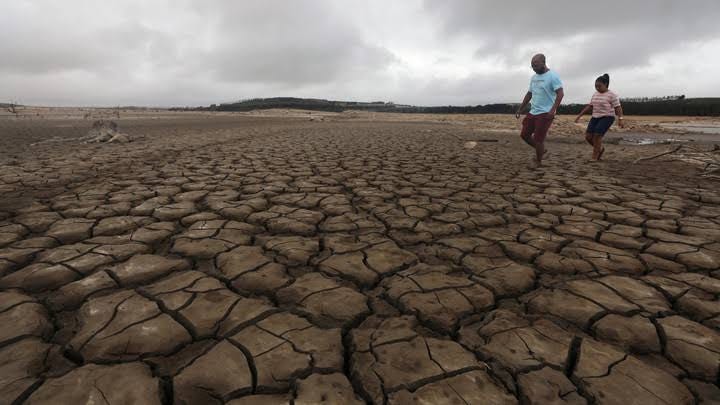Consumption, Water Crisis, Carbon Emissions: Blame everything on the Rich
Who do we blame for over consumption, water crisis, carbon emissions? Read more to find out
Water crisis in Cape Town, Credit, The Atlantic
In Cape Town, according to a new report, the elite and upper-middle-income households consume about 2,161 and 988.78 liters of water per household per day respectively, while lower income and informal households consume an estimated 278 and 41 liters per household per day respectively.
In an earlier report, the richest ten percent of humanity consume so much fossil fuel that people in this class account for over 52 percent of carbon emissions added to the atmosphere between 1990 and 2015, while the poorest people consume so little fossil fuel that those in this class account for just four percent of carbon emissions during the same period.
While many experts blame factors such as over population as the primary cause of water shortages and carbon emissions, studies continue to insist that the elite, upper-middle-income, and rich households not only consume an inordinate amount of water per day through their swimming pools and gardens, but also account for a lot of the carbon emissions behind climate change through their investments in the fossil fuel sector and usage of luxury items.
Elite and rich households enjoy the usage of such luxuries as swimming pools, but the water consumption of an indoor swimming pool for example can amount to 260 liters per person per day, with an average swimming pool taking 18,000 to 20,000 gallons of water to fill, far more than what an average family of four in the developed world can use in a month.
The rich such as billionaires enjoy making investments in the fossil fuel industry, with a report finding out that they made a collective $2.4 trillion stake in 283 companies; while 25 leading oil and gas producers, owned largely by them, extracted oil and gas from more than 3,700 fields around the world, the fields containing 500 billion barrels of oil and around 2,300 trillion cubic feet of gas.
Elite and rich households enjoy the tending of gardens, but a standard lawn of 1,000 square feet requires roughly 35,000 gallons of water over a year; while the rich, since they tend to over irrigate their landscape end up using up to 75,000 gallons of water per year through over irrigation by 60 percent.
With elite and upper-middle-income households enjoying the usage of water for swimming pools and gardens, and the rich making so many investments in the fossil fuel industry, it isn't surprising why most studies blame them for the present prevalence of water shortages in many parts of the world and for the carbon emissions propelling climate change.
Due to the trend among the elite and upper-middle-income households to over consume water and other reasons, more than 80 cities worldwide suffered severe water shortages in the past 20 years, a situation complicated by the current extreme weather events, which make vulnerable children globally find it difficult to access safe drinking water, as well as prevent them from having enough water to cater for their every day needs.
Additionally, more than two billion people worldwide lack access to safe drinking water; making nearly double that number to be bereft of good sanitation facilities, with the planet facing an unprecedented water crisis, as experts predict the global freshwater demand could exceed supply by 40 percent by 2030.
With the increasing investments the rich make in the fossil fuel industry, more than 393 million tons of carbon dioxide each year get emitted just by 125 billionaires, while the collective stake in the 183 companies mentioned earlier gives an annual average of three million tons of carbon dioxide per person, higher than the average 2.76 tons of carbon dioxide emissions by those in the bottom 90 percent bracket.
Through the over consumption of water by the rich, more than 64 percent of lower-middle-income and lower income households in cities such as Cape Town lack tap and toilets in their premises, while the over investment in the fossil fuel sector by the rich ensures that 125 billionaires emit the equivalent the carbon emissions of France.
Since the elite, upper-middle-income, and rich households continue to engage in the over consumption of water and over investment in the fossil fuel industry, it becomes understandable why humanity finds it difficult to cope with increasing extreme weather events and climate change.
Against this backdrop, nations must evolve measures to control the over consumption of water by upper-middle-income and rich households, before climate change curtails water supply. Other policies include controlling the rich's water cycle as a common good, stopping the wastage of water on swimming pools and gardens, and enabling investments in water sustainability, provision and availability in low- and middle-income nations..
Curbing the over investment in fossil fuels by the rich requires accelerating the transition to a low-carbon energy future. A well-orchestrated transition to climate neutrality brings the chance to face accompanying societal issues such as energy poverty, to prevent the reinforcement of existing inequalities and the creation of new challenges.
What to Eat
Taiwan vegan food, Credit, The Foodie Takes flight





